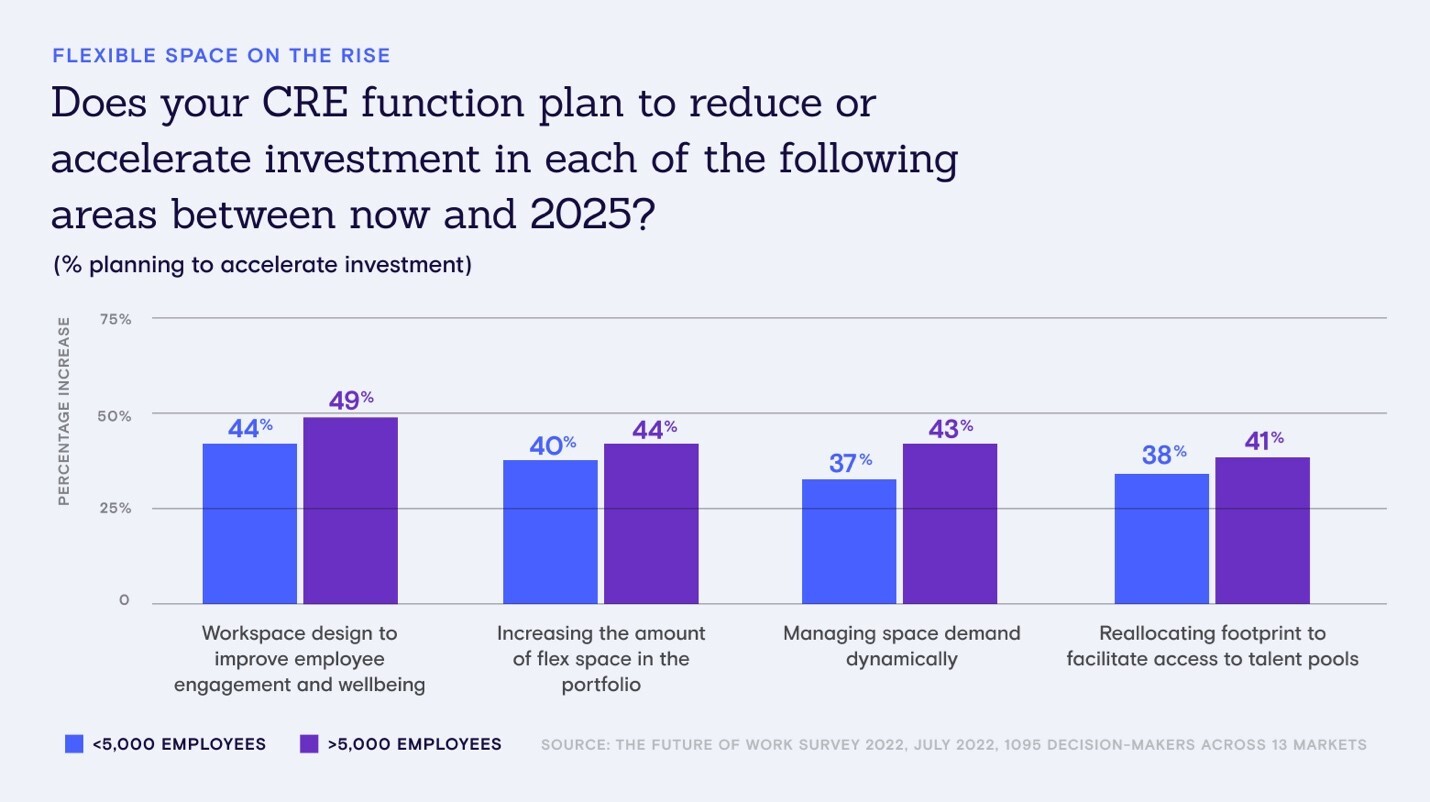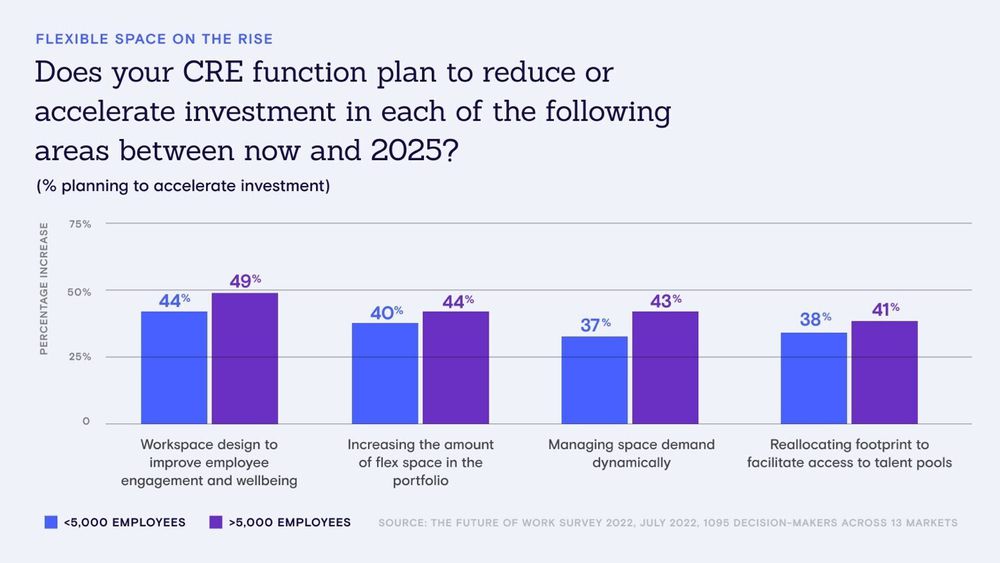There’s absolutely no doubt COVID has/had a profound impact on where and how people perceive the effectiveness and viability of broader hybrid work strategies. In the most recent JLL Future of Work Survey (August 2022), 77% of people surveyed agreed or strongly agreed that offering remote/ hybrid working will be critical to attracting and retaining talent.
Adoption of some level of hybrid work no longer comes with a “maybe” caveat. Almost every company is working to better understand what the hybrid work requirement means for them and in some cases testing out a wide range of different ideas.
Companies are responding…..
Among the most aggressive are the tech titans that drove so much innovation and disruption in recent years. They’ve stated over and over that they believe this is critical to hiring and retaining the creative, innovative young talent needed to fuel their future.
A great example is Airbnb’s Live and Work Anywhere announcement in April 2022. In that announcement Brian Chesky, Airbnb CEO, perfectly described this new work paradigm.
“Two decades ago, Silicon Valley startups popularized the idea of open floor plans and on-site perks, which were soon adopted by companies all around the world. Similarly, today’s startups have embraced remote work and flexibility, and I think this will become the predominant way that we all work 10 years from now. This is where the world is going.”
….but have they provided the “best response”?
Prior to the pandemic, co-working spaces were the fastest-growing type of office space in commercial real estate. While they currently comprise less than 5% of the market, they’re expected to make up 30% by 2030 (CNBC).
This growth is perfectly timed, as these are the types of workspaces that deliver the other half of the Live and Work Anywhere equation. Using these flexible spaces requires little or no investment by companies like Airbnb, providing employees with individual and group work options in many of the world’s most exciting and innovative locations.
JLL said it best:
Hybrid work has a durable presence and organizations must embrace it at scale, adapting and transforming their portfolio to empower a dispersed workforce anywhere they work. Dynamic occupancy management will be crucial to enabling maximum flexibility and elasticity across the portfolio. JLL: The Future of Work Survey 2022

Flexible Productivity
No company is in a better position than Airbnb to fulfil on the “Live Anywhere” part of their policy. But, like many companies, are they really fulfilling on the “Work Anywhere’ part of the promise.
The assumption is that most people will be happy simply living where they want, but do they really want to work from small desks or kitchen tables the entire time? So many companies have decided to embrace hybrid, but have they really explored the full extent of what hybrid means and how to equip employees with the best set of options for success?
Companies like Airbnb have made the live anywhere piece incredibly easy, and companies like Deskpass are ensuring that the work anywhere piece is as well.



